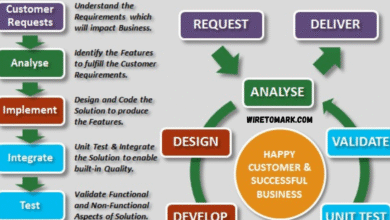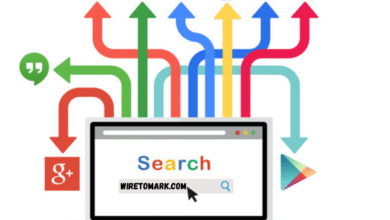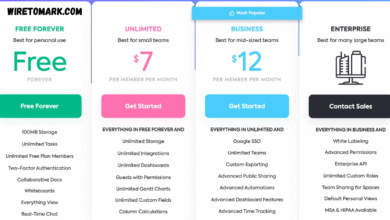Data Entry Jobs A Complete Guide for Beginners and Professionals

When people think about flexible online work, one of the first things that comes to mind is data entry jobs. These jobs have been around for decades, but with the boom of remote work and freelancing, they have become more accessible than ever. Whether you’re a student looking for part-time income, a professional exploring side gigs, or someone aiming for a full-time remote career, data entry can be a solid place to start.
The beauty of data entry work is that it doesn’t require years of experience or a complicated degree. Instead, it rewards individuals who are detail-oriented, organized, and willing to put in consistent effort. But like any other type of work, it’s important to know what to expect, where to find legitimate opportunities, and how to improve your chances of success.
Understanding Data Entry Jobs
Data entry jobs are essentially roles where individuals are responsible for inputting, updating, or maintaining information in digital systems. That could mean typing information from paper into a spreadsheet, transferring customer records into databases, or organizing survey results into usable formats. It’s simple in concept, but accuracy and speed are critical.
For many beginners, these jobs are appealing because they don’t involve steep learning curves. You don’t have to be a tech wizard to start, but you do need to be reliable and consistent. Employers and clients value data entry specialists who can deliver accurate results on time, without requiring constant supervision.
Skills Needed to Excel in Data Entry Jobs
While these jobs might seem straightforward, there’s more to them than simply typing. The ability to stay focused for extended periods is one of the most important skills. Mistakes in data entry can be costly, so attention to detail is crucial. Equally important is the ability to manage time effectively, since many projects come with deadlines.
Basic computer literacy is another must-have skill. Knowing your way around common programs like spreadsheets, databases, and text editors makes the work smoother and more efficient. Beyond that, good communication skills help you better understand client instructions and clarify details before starting a project.
Advantages of Choosing Data Entry Jobs
One of the biggest advantages of pursuing data entry is flexibility. These jobs are often remote, meaning you can work from home, a café, or even while traveling. That flexibility makes them perfect for people who need to balance work with other responsibilities, such as parenting or studying.
Another major perk is the low entry barrier. You don’t need specialized training to get started, which is rare in today’s competitive job market. This makes data entry one of the few opportunities where beginners can step in and start earning without heavy upfront investment in skills or equipment.
Challenges in the World of Data Entry
While the benefits are clear, data entry jobs also come with challenges. The work can sometimes feel repetitive, which may not appeal to people who prefer highly creative roles. Maintaining focus on long lists of numbers or text can be tiring, and it requires a lot of mental discipline.
Another challenge is the competitive nature of the field. Since it’s an easy job to enter, many people around the world apply for the same roles. This can push rates lower in some cases, especially in freelance marketplaces. For this reason, building a strong reputation for accuracy and reliability can help you stand out from the crowd.
Where to Find Genuine Opportunities
The internet is full of opportunities, but not every posting is legitimate. Unfortunately, scams are common in this industry, so it’s important to stick to well-known platforms or companies when looking for work. Popular freelance marketplaces, corporate job boards, and remote work platforms often list reliable openings.
Networking can also be a surprisingly effective way to find jobs. Sometimes small businesses need help with data entry but don’t advertise widely. By letting friends, family, or professional contacts know you’re available, you might find opportunities that aren’t posted online.
Tools That Make Data Entry Easier

Having the right tools can make your work smoother and faster. A good keyboard, for example, can improve typing speed and reduce fatigue. Software like spreadsheets and database management systems is a given, but there are also automation tools that can simplify repetitive tasks.
Cloud storage services are another must-have. They make it easier to back up your work, share files with clients, and ensure you don’t lose progress due to computer issues. Over time, learning how to use shortcuts and advanced features in these tools can save you hours of work.
Building a Career from Data Entry Jobs
While some people treat data entry as a side hustle, others turn it into a long-term career. The skills you develop—accuracy, organization, and software proficiency—can be stepping stones to higher-paying administrative or analytical roles. For example, many virtual assistants and office managers started out with basic data entry.
The key to building a career is continuous learning. By picking up complementary skills such as Excel formulas, data analysis, or project management, you can move beyond entry-level work and attract better-paying clients or positions. Over time, you can even specialize in certain industries like healthcare or finance, where accurate data management is essential.
Tips for Success in Data Entry
If you’re serious about succeeding in this field, consistency is everything. Delivering accurate work on time helps you build a reputation that brings repeat clients and referrals. Even though the tasks might be simple, employers remember those who make their lives easier by being reliable.
Another tip is to pace yourself. Since the work can be repetitive, burnout is a real possibility. Taking regular breaks, maintaining good posture, and investing in an ergonomic workspace can make a big difference in your productivity and long-term health.
Future of Data Entry Work
The world of work is constantly changing, and data entry jobs are no exception. With the rise of automation and artificial intelligence, some worry that the demand for manual entry will decline. While it’s true that machines can handle certain tasks, there will always be a need for human oversight to ensure data quality.
In fact, the future may see data entry roles evolve rather than disappear. Instead of pure typing work, professionals may focus more on verifying accuracy, managing automated systems, and handling sensitive or complex information that requires human judgment. This makes adaptability an important trait for anyone in the field.
Conclusion
Data entry jobs may not sound glamorous, but they play an essential role in keeping businesses organized and running smoothly. For people looking to get started in the world of remote work, these roles offer a straightforward path with flexible options. The key is to approach them professionally—treat them as real work, deliver consistently, and keep learning.
With time, what starts as a simple gig could turn into a stepping stone toward a fulfilling remote career. And even if you stick to part-time projects, the combination of flexibility, low entry barriers, and steady demand makes data entry an option worth considering.
FAQs
What are data entry jobs?
These jobs involve entering, updating, or maintaining digital information, often using spreadsheets or databases.
Do I need special skills to start?
No. Basic computer literacy and attention to detail are usually enough to get started.
Can data entry be a full-time career?
Yes. Many professionals turn entry-level data entry into long-term administrative or specialized roles.
Are there risks of scams?
Yes. It’s important to use trusted job platforms and avoid offers that sound too good to be true.
Is data entry work boring?
For some people, it can feel repetitive. However, others find the routine calming and enjoy the stability it provides.



